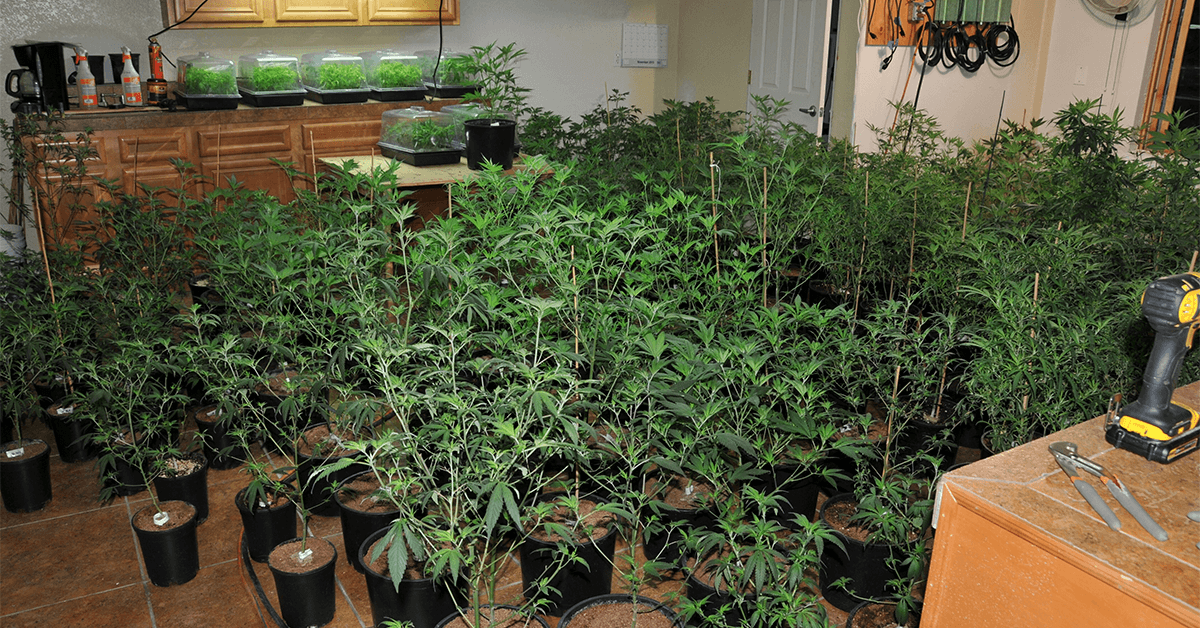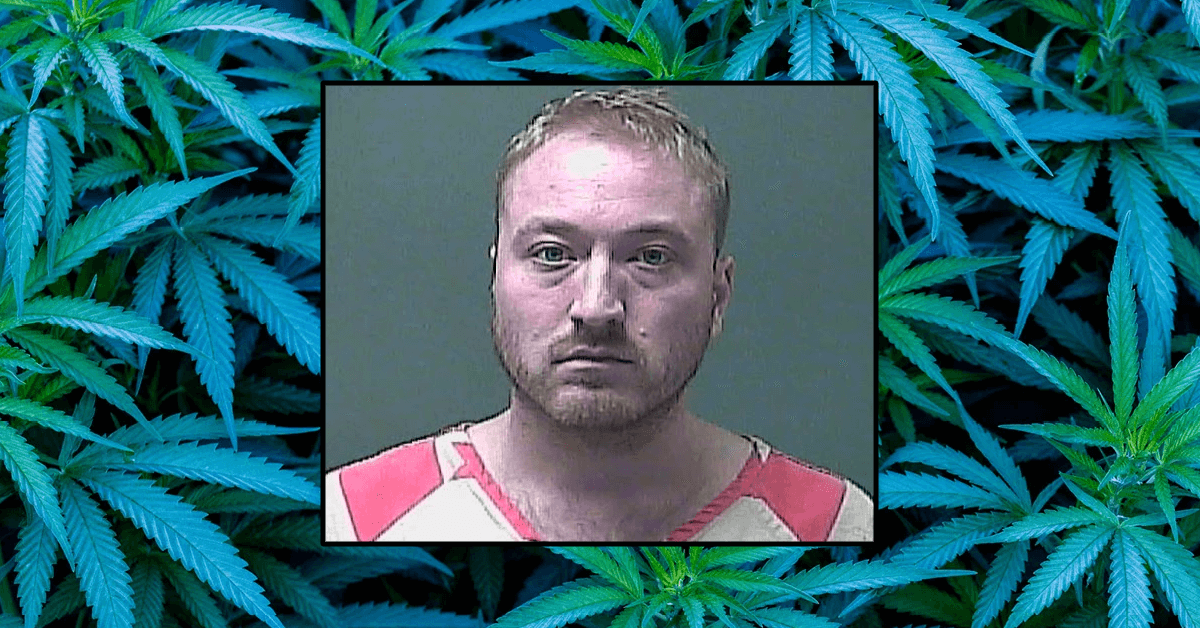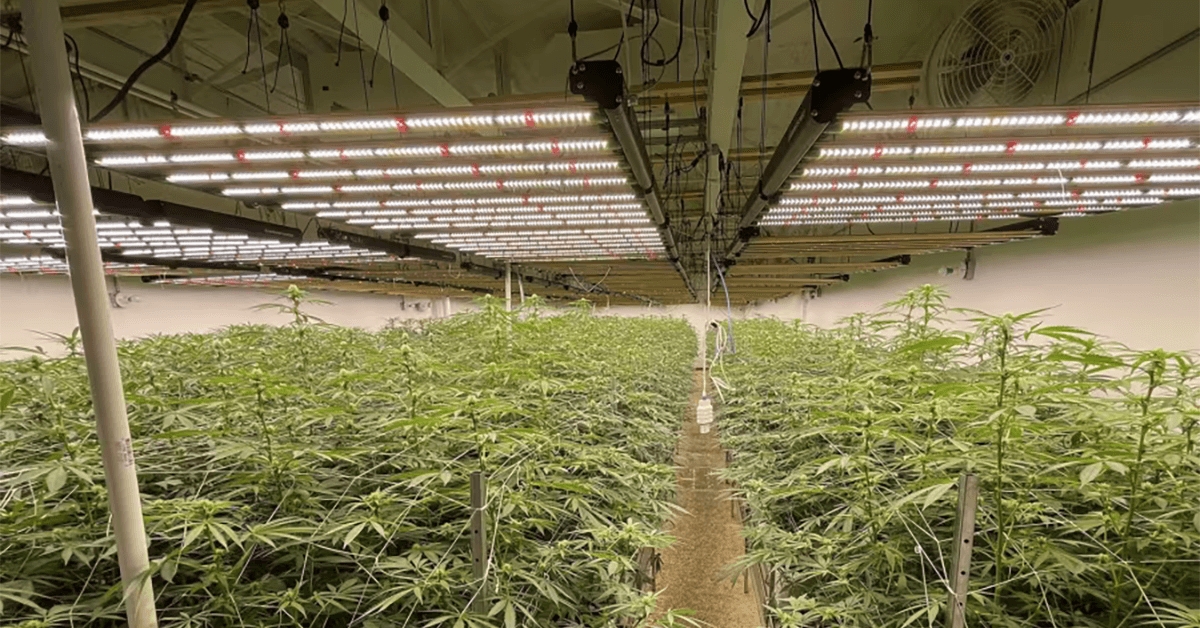The Rise of Illegal Cannabis Grow Operations in Mecosta County

In the state of Michigan, where the cultivation and use of cannabis have been legalized, a new challenge has emerged that has caught the attention of law enforcement agencies, particularly in Mecosta County. This challenge revolves around the establishment of illegal cannabis operations by individuals, notably from the Cuban community, who are engaging in black-market cultivation. These illicit activities have not only led to concerns about the potential for violence and crime but have also highlighted issues of human trafficking and exploitation within the industry.
The legalization of cannabis was intended to regulate and control the production, distribution, and consumption of the plant, ensuring safety and legal compliance. However, the emergence of black-market operations has underscored the complexities and unintended consequences of cannabis legalization. The Mecosta County Sheriff's Office has raised alarms over the influx of individuals involved in these illegal endeavors, pointing to a growing problem that threatens the safety and integrity of the local community.
Legal Battle Ensues as Cannabis Firm Alleges Non-Payment by Michigan Clinic

A cannabis-focused laboratory and consulting company has filed a lawsuit against a Michigan-based clinic, alleging the clinic has failed to pay over $100,000 in fees for services rendered. The legal action, initiated in a Colorado federal court, centers on a contract between North Star Scientific Solutions LLC, the plaintiff, and Michigan Health Clinics PC, the defendant.
According to the filed complaint, Michigan Health Clinics engaged North Star Scientific Solutions to assist in creating a comprehensive project plan aimed at securing a cannabis testing license from the state of Michigan. The clinic was successful in obtaining this license in July. However, it is reported that it ceased payments to North Star several months prior, neglecting its financial obligations under the agreement signed in June 2021 and its subsequent amendments.
As of the lawsuit's filing, North Star claims the clinic owes a total of $101,441.22, which includes the principal amount for services provided and a 5% late fee, as stipulated in their contract. The consulting firm asserts that despite fulfilling its part of the agreement, leading to the clinic acquiring its cannabis testing license, it has not received compensation for its work.
The dispute reportedly began to escalate toward the end of 2022 when the clinic's payments became sporadic, culminating in a final payment of $50,000 in February 2023. This payment was intended to settle months of overdue fees. Despite assurances from the clinic that payments would stabilize once the license was secured, North Star alleges that no further payments were made.
In an attempt to resolve the issue, North Star engaged in communication with David Stockman, identified as an agent for the clinic, in October. The firm expressed its dissatisfaction with the clinic's failure to meet its financial commitments, including a specific instance where the clinic did not pay an agreed-upon sum of $25,000. Despite these efforts and a demand letter sent by North Star's legal representation, the Vethan Law Firm, in December, claiming $97,000 was owed, the clinic has not made any payments or responded to the demands.
As of now, the clinic has not provided a response to inquiries regarding the lawsuit. The legal representation for Michigan Health Clinics in this matter has not been disclosed. North Star is represented by Charles M.R. Vethan of the Vethan Law Firm in this ongoing legal dispute, officially titled North Star Scientific Solutions LLC v. Michigan Health Clinics PC, case number 1:24-cv-00541, in the U.S. District Court for the District of Colorado.
Michigan Residents Arrested in Alabama Following High-Speed Pursuit and Drug Bust

Three individuals, two from Michigan and one from Minnesota, are currently being held in the Lawrence County Jail in Alabama following a high-speed police chase that concluded on Wednesday afternoon. The incident began when an Alabama Law Enforcement Agency (ALEA) trooper initiated a traffic stop on a Cadillac Escalade for exceeding the speed limit on Alabama Highway 24 near Franklin County. The driver, identified as John Borelli, a 29-year-old resident of Chesterfield, Michigan, chose to flee the scene, prompting a pursuit.
The chase came to an end in Lawrence County with the collaborative efforts of the Moulton Police Department and the Lawrence County Sheriff's Office. A subsequent search of Borelli's vehicle revealed a significant haul of illegal substances and weapons, including $50,000 in cash, 12.5 pounds of cannabis, 121 doses of Liquid THC, three handguns, and a rifle. It is believed that these cannabis products were being transported from Michigan to Alabama for sale.
Borelli faces a slew of charges, including drug trafficking, eluding law enforcement, possession of a firearm with an altered serial number, receiving stolen property, reckless driving, and speeding. He is currently detained with a bond set at $1,518,000.
The passengers in the vehicle, Darius Braden, a 28-year-old from Detroit, Michigan, and Cor'tae Davidson, a 20-year-old from Rochester, Minnesota, were also arrested. Both have been charged with drug trafficking; Braden's bond is set at $1.5 million, while Davidson's is significantly lower at $20,000.
This incident underscores the ongoing issues of drug trafficking and the interstate transportation of illegal substances, highlighting the routes used by individuals attempting to distribute cannabis products across state lines.
Wisconsin Man Faces Charges for Transporting Michigan Cannabis Through Indiana

A Wisconsin resident, identified as Jonathan Millard, faces charges in La Porte Superior Court 1, Indiana, for alleged possession and intent to distribute a significant quantity of cannabis. The charges come after an incident on February 23rd, when Millard was stopped by law enforcement on Interstate 94 near Michigan City for multiple traffic violations, including failing to signal while changing lanes and following too closely to other vehicles.
During the stop, law enforcement officials discovered 56 one-pound packages of cannabis, 1,000 THC vape cartridges, various THC-infused edibles including gummies and syrup, and four jars of THC wax in Millard's rental vehicle. This discovery was made with the assistance of a K9 unit, which alerted officers to the presence of the substances.
Court documents indicate that Millard had traveled from his home in Wisconsin to the Detroit area and was on his way back when he was detained. The origin of the cannabis products, whether they were purchased legally from a dispensary, has not been disclosed.
This incident underscores a growing trend in LaPorte County, where there has been a notable increase in arrests related to the transportation of legally purchased cannabis in Michigan through Indiana, where cannabis remains illegal. Previous cases have involved individuals acquiring cannabis from dispensaries in Michigan locales such as New Buffalo Township and Buchanan.
Millard is potentially facing a six-year sentence for the level 5 felony charge. Following his arrest, he posted bond and was granted permission by a judge to return to Wisconsin to await further proceedings in his case.
Over $6 Million in Cannabis Confiscated in Highland Park by Michigan State Police

In a significant operation on Wednesday, February 21st, the Michigan State Police dismantled a substantial illegal cannabis cultivation facility in the Detroit metropolitan area, confiscating over 4,000 cannabis plants along with a substantial quantity of processed cannabis. This action marks a notable enforcement effort against unlicensed cannabis operations within the state.
Initiated in 2023, the investigation targeted a large-scale cultivation operation in Highland Park. Michigan State Police's diligent efforts uncovered that the suspects involved had not secured the necessary medical or recreational cannabis licenses, leading to the execution of a search warrant at the premises.
The haul from the operation included more than 4,000 cannabis plants, 213 pounds of processed cannabis, and 362 pounds of drying flower stalks. The Michigan State Police estimate the market value of the seized substances at approximately $6.3 million, highlighting the significant scale of the illegal operation.
The investigation, conducted by the MSP Second District's Marijuana & Tobacco Investigation Section, began in late fall 2023. Despite the complexities involved, the team was able to confirm the facility's operations were in violation of Michigan's cannabis regulations, lacking the necessary licenses for both the suspects and the facility.
With the price of cannabis currently standing at $93 per ounce for products sold through licensed establishments as per the Cannabis Regulatory Agency (CRA) guidelines, the seizure represents a major disruption to illegal cannabis trade in the region.
As of this report, no arrests or charges have been made public in connection with the operation.
Michigan's stance on cannabis has evolved significantly, with the state's voters approving the legal use of recreational cannabis in 2018. The law permits adults in Michigan to possess cannabis in limited quantities and cultivate up to 12 cannabis plants for personal use. However, large-scale cultivation and sales operations require appropriate licensing, underscoring the importance of compliance with state regulations.
Detroit Community Rallies Against Sale of Tobacco and Cannabis to Minors

In Detroit, a rising wave of concern is sweeping through the community as allegations surface about smoke shops selling tobacco and cannabis products to minors. This issue has prompted local residents to demand more stringent measures to prevent such practices, following the recent shutdown of a local shop accused of these illegal sales. The closure of this establishment, however, has sparked a broader debate on the responsibility of retailers and the need for community action to protect the youth.
The spark for this outcry was ignited on Detroit's east side, where community members, led by local ministers and concerned citizens, gathered to protest. They argue that shutting down a single business is insufficient to address the systemic problem of underage sales of tobacco and cannabis. The protest was not just a stand against one errant retailer but a call to action for the city to enforce stricter regulations and oversight on all businesses that flout the law by selling harmful substances to children.
At the heart of the protest was the proximity of these shops to local schools, highlighting the ease with which students could access tobacco and illegal cannabis products. This accessibility raises significant concerns about the health and safety of Detroit's youth, particularly given reports of other shops in the city engaging in similar practices. One alarming revelation was a business on the west side accused of selling vape products to children as young as 11 and 12 years old, according to local school principals and students.
The community's frustration is palpable, with protesters emphasizing that this issue is not isolated to one location or age group but is a citywide concern that affects children across Detroit. The blatant disregard for the well-being of young people, especially young Black lives, in these communities has been called out as unacceptable. Protesters argue that such predatory practices would not be tolerated in the perpetrators' own communities and should not be allowed to continue in Detroit.
The rallying cry from the east side of Detroit is clear: the time for change is now. The community's stand against the sale of tobacco and illegal cannabis to minors is not just about law enforcement but about taking collective responsibility for the safety and future of their children. This issue highlights a critical need for more robust regulations, vigilant enforcement, and community engagement to ensure that businesses cannot profit at the expense of the health and safety of minors.


 Helpful Links
Helpful Links